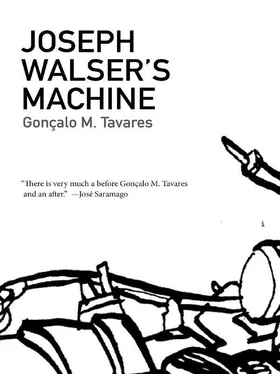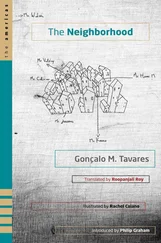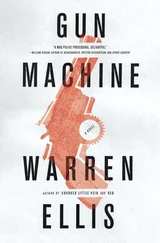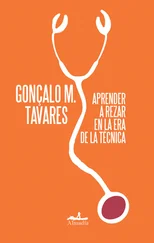Human existence, at its most essential, hadn’t been the least bit upset after thirty centuries and three thousand violent conflicts. If what you want is to change the order of existence, it’s clear that war won’t do, Walser had heard from Klober, the foreman.
But peace can’t change Man either, of course. The dice were already rolled long ago.
Joseph Walser went out every Saturday night to Fluzst M.’s house, where he played dice for low-stakes bets with three other workmates. The five men all worked at the same factory. They were all low-level employees and made average wages. Over the years their passion for games of chance had brought them together. There was no exceptional friendship among them, but they rarely missed a Saturday. The amounts being bet in the game could be considered small, when compared with other underground games around the city, but in proportion to their wages the amounts were large. All five men were married; for the players, their wives were the most difficult thing about their gambling. There wasn’t a single wife who didn’t complain about her husband losing a certain amount of money in the game.
Each week, one of the five men was allowed to bring a guest to the game. Thus, every five weeks it was Joseph Walser’s turn to bring a guest, if he wanted to; but it never happened.
Having dice in one’s hand simplified the world.
Life was reduced to six numbers, embedded in each die, as if the die were not merely an object belonging to a game of chance, but some concrete substance with the ability to produce a formula that could explain all the interconnected forces on earth.
During those moments, another kind of decision-making was required, different from the kind that the passing days normally require of each man. The tension that results from having an infinite number of possibilities evaporated; there, on that table, each of the dice limited the number of possible pathways. And what pleased Joseph Walser was precisely the sensation that at that table, at long last, there were limits. There were no unknown elements, there was no annoying “something else” that could pop up, or indeed anything unseen. There was nothing lacking, everything was there already, in the game, nothing new could crop up to disrupt the proceedings. There were six numbers stuck to the die and they weren’t going anywhere. There was no seventh cipher, no seventh hypothesis. Six was the limit.
It was this precision that excited him, this precision that was well-defined by immutable limits that, nonetheless, allowed room for his peculiar decisions, which, in truth, were not decisions at all. Just like everybody else, Walser accepted what the dice gave him. He accepted the decisions the dice made. The one great decision in the game was, at root, the profound and powerful decision to accept, the decision that one is ready for absolute submission, willing not to interfere in the events taking place. He accepted his position as something exterior to these events and rolled the dice. Thus, Joseph Walser’s big decision was made a few hours before each game began.
When, after a few minutes of hesitation, he stood up each Saturday, left his house, and walked through the streets — his pace not too fast and not too slow — towards Fluzst’s house, it was clear, indeed, that he had already made his big decision: he was going to play.
Because it was obvious that the dice themselves were more powerful than the players. These men were used to obeying during the week, and on Saturday, oddly enough, they entered into another system of obedience: that of luck, chance.
It would be quite another thing if Joseph Walser entertained himself playing games of skill, in which individual ability determined victory or defeat. For example, the shooting games they have at the little fair in the city. There were many men, including some of their workmates, who went out to the fair on Saturday nights to show off their athletic prowess and ingenuity; accomplishments that they would later take great pride in, during the following week.
But how could a man take pride in his luck? How could he take pride in a mere apparition (each spotted side that emerged face up appeared almost by surprise)? In spite of the limited number of possible outcomes, the players shouted in amazement every time the dice came to a stop.
Those five men were, therefore, face-to-face with apparitions, apparitions of luck or of chance, of high numbers and low numbers. Apparitions, things that emerged into the world without any cause, things that were separated from the rest of the universe because they were purely effects, with no antecedents, no logic, no law: the players tossed the dice on the table and the results appeared. Like ghosts, Joseph said one time.
But there was an immediate physical pleasure just before these apparitions came into being. Right at the moment that Joseph Walser picked up the two dice and rattled them around in his hand, feeling like a cook mixing two ingredients.
Joseph Walser’s right hand formed a shell where he stowed the dice; one could call it a cavern, sheltering two similar animals — but motionless, unbreathing animals, and the only sound emerging from the cavern is a consequence of their getting knocked against each other, achieved by the movements of the central fingers on Joseph Walser’s right hand in concert with his thumb.
At the very moment he handled the dice before throwing them down on the table, Walser felt an inexplicable excitement, a feeling he couldn’t quite classify. At that moment he concentrated on images from the past, or even invented images, in which parts of the anatomy of young women seemed to merge somehow with the dots that represented numbers on each side of the cubes. This perverse contamination of the dice by such specific images of the human body elicited a somewhat confused image in Walser’s mind, but it was expressed externally by a smile that the other men at the table couldn’t characterize as anything less than obscene. Walser experienced — at the moment when his thumb, index, and other fingers rolled the dice around on the palm of his closed hand — a feeling of control that didn’t exist in any other circumstances in his life. In that instant Walser felt that he was in control of the world, that he was manipulating it, that he was capable of making it say yes or no with only a quick change in the movement of one of his fingers. As if, at that moment, the yes or no of the physical world depended exclusively on the angle of his thumb.
However, on that night Joseph Walser decided to walk out on the game after only an hour.
“We’re just getting started,” said Fluzst, but Walser settled up and said good night.
Without knowing why. He felt uneasy.
It wasn’t the war; he had decided to stay neutral some time ago. An army had already invaded the city, but that wasn’t any of his business. He viewed the war as though it were a science that he didn’t understand: he couldn’t see what it was, didn’t understand its methods, its strategies, its system for taking measurements. I shouldn’t make statements about something I don’t understand, much less act on something I don’t understand, Walser himself had said. That which one does not understand should only be observed. Nothing more.
War was a science that used obscure terminology, and since he felt timid and never intruded into conversations about topics he didn’t understand, he had decided not to meddle with it. The factory where he worked was still operating as usual, his position at work was secure, he hadn’t been switched over to a different task, he hadn’t even had to change so much as the smallest of his movements in the operation of his machine; hence, everything was still the same.
Читать дальше












